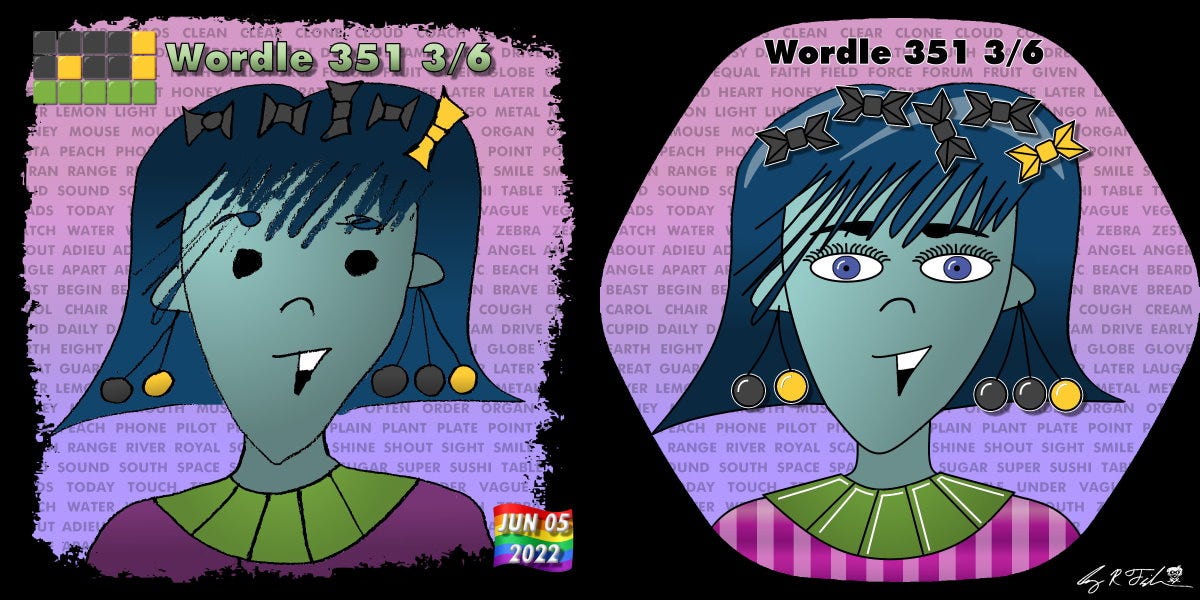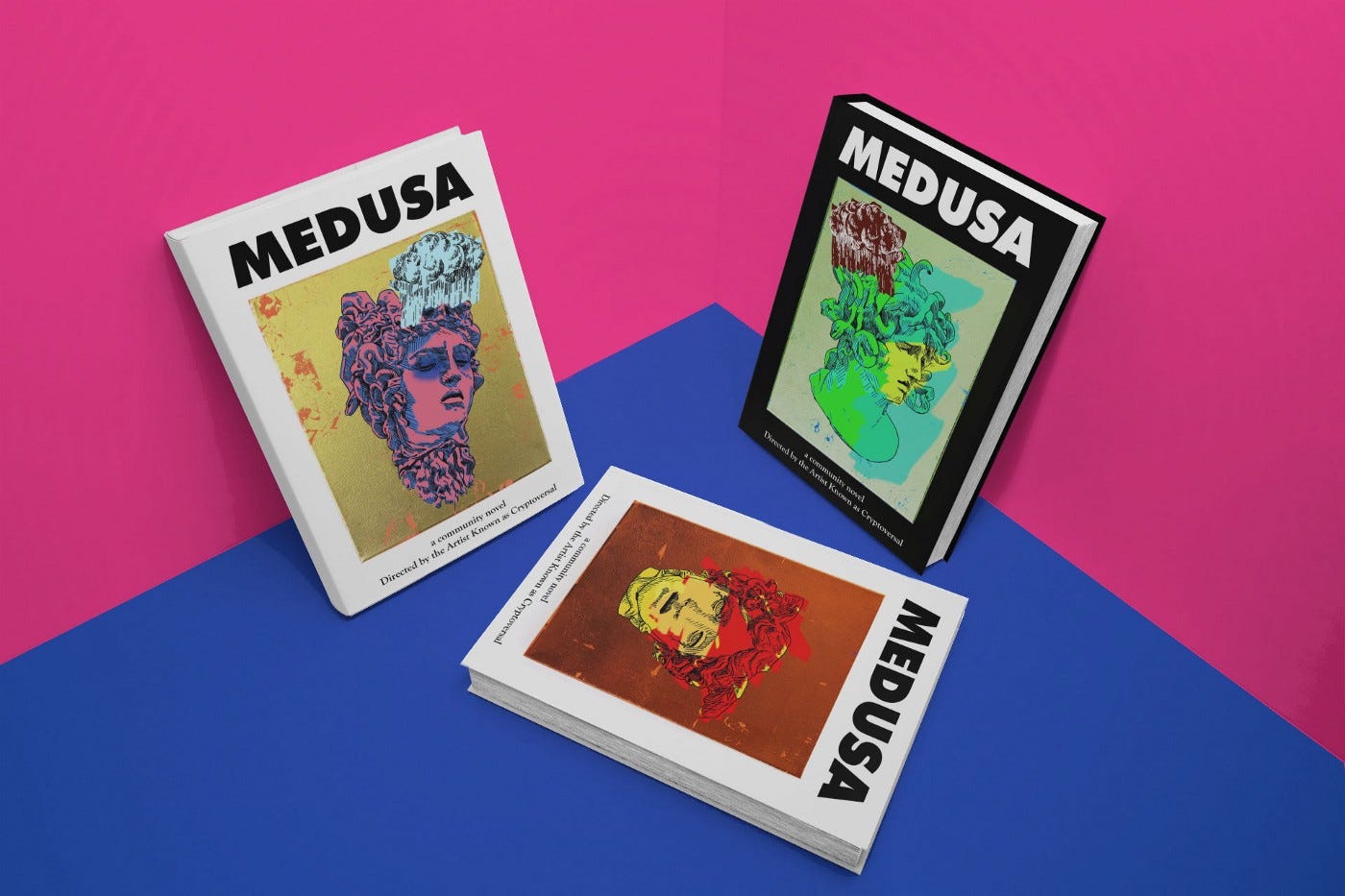The Supreme Court of American Mythology
A mythological take on recent U.S. Supreme Court decisions
For those of you subscribed to my Wordle Stories on Cent Pages, you will also be receiving my semi-regular Mytholoversal Newsletter. For those who aren’t subscribed to Wordle Stories, more on them after a bit of mythology…
A Mythological Take on Recent Supreme Court Decisions…
Myths are the stories a culture tells itself about itself. When I write about mythology, I usually look back on the stories of ancient cultures and their modern reception, but mythology comes in modern flavors as well. National mythologies include stories about the foundations of a country, its founders, its values, and its most formative events.
In the United States, where I live, we tell stories about George Washington, who could apparently never tell a lie, and who once threw a silver dollar across the Potomac River. We tell stories about Abraham Lincoln teaching himself how to read by candlelight and maybe something about wrestling a bear? When we tell the tale of Paul Revere, it’s usually the heroic version from Longfellow’s poem, and not the historical version where he got captured by the British. We tell a story about Betsy Ross that has little to no foundation in documented history at all.
Even the structure and functions of the U.S. government are built on a platform of national mythology. All elected officials, government employees, and military personnel swear an oath to defend the Constitution from all threats, foreign and domestic. But the U.S. Constitution and its Amendments are vague documents that can only provide consistent guidance only through interpretation, precedent, and tradition.
Despite a lack of specificity in the founding documents, we tell a story about the nine men and women, no more and no less, serving together on a Supreme Court. We tell a story about that Court serving as a co-equal counterbalance to the Legislative and Executive branches of government. We tell a story about the Justices of that Court being above and apart from partisan politics, even though we should know better.
Through its decisions, the Supreme Court turns the Consitution into a story that tells the United States what kind of country it’s meant to be. In all practical respects, American mythology created the U.S. Supreme Court, and the U.S. Supreme Court curates American mythology.
In a slew of cases this past month, a conservative majority of the currently constituted U.S. Supreme Court changed our national story in ways that many people found frightening, or even threatening.
They told us we were a country that needs more holes in the wall that separates Church and State, a country where states can now control the bodily autonomy of its citizens, a country where more people can carry more weapons in more places more of the time, a country where Indigenous communities have fewer judicial rights, and a country where the Environmental Protection Agency will be less able to protect the environment.
They told us these myths, these stories about ourselves, and those myths became our new truths. As a result, the United States is a different country in all of these ways than it was even just a month ago.
However, we know from our study of mythology that myths come in multiple variations. Some of us hold to an alternate narrative about who we are as a country, who we really are as a country, and those stories will remain equally true and valid for us for as long as we continue to retell them.
Ultimately, the real power behind the Constitution has always been embodied by the first three words of its preamble: WE THE PEOPLE.
Keep the faith and keep telling your truths.
Wordle Quest
Every morning, a new Wordler sets out on a quest for the five-letter word that can protect Wordler Village for one more day…
I've been doing the Wordle since February. I don't use the most algorithmically perfect starter words or strategy but I have fun with it.
I’ve been making my results into portraits and writing Wordle Quest stories for a bit less than a month. You can collect them for free at Greg.Cent.co. Each is available to claim until the next is released or until 888 are claimed, whichever comes first. About 12,000 copies of various World Quests were claimed in June.
As flash fiction, they’re not my best writing, and art has never been my strongest skill, but I’m having fun with those as well.
I enjoy sharing the results and experimenting with emergent technologies to make them maximally available to read, reasonably scarce to collect, and as environmentally responsible as possible. The technology is developing quickly, but some challenges remain.
My own collection of Wordle Stories has a big hole in it because I forgot to reserve any copies for myself, and because the nature of the blockchain makes it impossible to ever add to an already-released edition. The lesson for authors is, if you want author copies of your work, you need to make sure you set that up in advance.
The art design and story format are still evolving, and the nature of the blockchain resists revision and preserves past mistakes and typos, potentially forever. I have to be a lot more careful, without a revision process to fall back on.
But despite the limitations and learning curve, or because of the challenges they provide, it's been a net positive experience so far.
In case you were wondering how the art has evolved over the course of the month, here’s the original version of Wordler 351 side-by-side with a version created from the current template:
Medusa Writer’s Studio
I’d hoped to have another chapter ready for review from my ongoing literary collaboration with Cryptoversal Books and the Medusa Collection. It’s not quite ready but will be coming soon.
The community-directed novel under development will attempt to voice a long-repressed part of a once-diverse canon. The community has asked for a full-length novel version of Medusa’s story that can be described as Circe meets The DaVinci Code.
I will provide further updates as the novel progresses toward publication.
—Greg R. Fishbone, Mythology Disruptor






